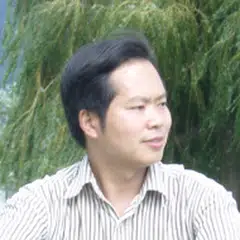Eradicating academic warlords and bandits in Chinese academia

Are Chinese government officials or academics more corrupt?
The majority may feel that it is the former since the bribes involved are generally bigger. However, while the extent of corruption can usually be gauged by considering the ratio of the misappropriated sums versus the total amount of public resources available, the amount of public resources available to academics is far lesser than government officials. Hence a simple ratio is inadequate for determining whether politics or academia is more corrupt. The truth of the matter is that in academia, covert corruption or what I call "legal" corruption is more pronounced than overt acts of corruption that are explicitly prohibited by law.
A near-monopoly of valuable academic resources
In academia, there is a special group of scholars who have political powers. They are the main culprits of corruption. One of their biggest ills is having a near monopoly on valuable academic resources.
With the assistance of 16 postgraduate students, I conducted a study into the backgrounds of the recipients of three academic awards over a period of time. The study found that a large proportion of high-end academic resources went to academics with political powers. Here, I am referring to awardees with administrative grades of "division head" and above. Combining the three sets of data, it was found that such academics bagged 2011 or 52.3% of the 3847 awards, with the remaining 1836 or 47.7% going to ordinary academics (Note 1).
Although no more than 1 in 30 of all academics are also government officials, the figures in the preceding paragraph indicate that they received at least 33 times as much high-end academic resources as an ordinary academic. If we were to go one step further and exclude those with administrative grades of "deputy division head" as well as those with powerful backing from the general population of academics, then academics with political powers may be more than 100 times more likely to receive high-end academic resources than an average academic.
Of course, it may well be that the double hatters were superior scholars to begin with, but after becoming government officials, they would have to spend a lot of time on government work, leaving little time and energy for academic pursuits. Yet, their access to high-end academic resources is greatly boosted, making it difficult to deflect suspicions that they use their political powers to this end.
An outright violation of modern political principles
While the public is unequivocal in denouncing overt corruption in academia, it is grossly misinformed when it comes to covert corruption such as the double hatting that occurs in government and academia. It is covert and not overt corruption that is behind the worsening state of affairs in academia. At the start of this article, I described covert corruption as "legal" because it takes place openly and does not contravene the law and established institutional procedures.

But, from a jurisprudence point of view, this form of double hatting is corrupt since it violates the modern political principle of separating powers. With legislative, administrative and judicial powers combined, academics with political powers are more "powerful" than government officials. These double hatters set academic standards, thus legislating academia; they set up awards and grants to uphold academic standards, and pick the judging panels for the said awards and grants; they have judicial powers since they participate in reviewing the quality of academic works and can decide how these works should be graded and whether they should be commended; and on top of all these, they also compete for research grants and academic awards.
As British historian Lord Acton once said, "Power tends to corrupt, and absolute power corrupts absolutely." Thus, it is not surprising that such an arrangement has given rise to an oligopoly and aristocracy in academia. The so-called academic warlords (xuefa 学阀) and academic bandits (xuefei 学匪) refer to those in this group.
They are free to carve up the high-end academic resources at will and leave the scraps as a consolation prize for the others.
While government officials only have limited political powers that the corrupt ones amongst them trade for benefits, members of the oligopoly in academia have far greater powers. In fact, they do not even have to partake in such transactions to bribe or be bribed. They are free to carve up the high-end academic resources at will and leave the scraps as a consolation prize for the others. Members of this oligopoly are the biggest threat to academia.
Critical need to separate political and academic power
Technically, it is very easy to separate politics from academia. All that is required is an advanced institutional structure that limits the rights of government officials of a certain rank (e.g. division head) and above to freely engage in academic activities such as being the sole applicant for research funding or awards, being the main mentor of masters and PhD students, and participating in review and appraisal work as experts.
Even though the double hatters would still have some academic power after checks and balances are imposed, their influence would be reduced. At the same time, such measures can prevent government officials with no academic contributions from quickly becoming authority figures in academia or even academics rapidly.

To eliminate the practice of government officials double hatting as academics, misperceptions of shuang jian tiao (双肩挑, see Note 2) also need to be corrected. While the original intention of shuang jian tiao was good, it has several shortcomings.
Firstly, it always results in power being concentrated in the hands of a small group of academics i.e. an oligopoly. This, in turn, causes universities to become highly bureaucratic. The practice also does not satisfy the evolving needs of academic research. As academic research becomes more professional and specialised, scholars often need to put in a lifetime of work in exchange for a bit of breakthrough and contribution to academia. An academic who has to spend a lot of time on administration work would not have much time left for academic work and is also unlikely to produce innovations.
In agricultural and rural China, where the degree of specialisation was low and division of labour unclear, shuang jian tiao was a feasible approach. Back then, an individual could engage in various types of work and there are quite a few examples of those who entered government service after enjoying academic success. In ancient times, many government officials wrote books to promulgate their teachings, and many scholars without prior political experience took on mid to high-level government positions immediately after crossing over. The situation today is very different. As the division of labour becomes increasingly finer and the degree of specialisation becomes higher, only a very small number of those who are highly talented and very diligent are able to attain achievements in more than one sector.
Benefits and limitations
Separating politics and academia is an administrative reform undertaken on a small scale since it only involves less than 1 in 30 of all scholars. However, it is a very important step with significant implications that would make processes in academia more transparent and fair. Such a move not only prevents academics from holding political appointments, but also allows academics to exercise their academic powers independently.
...corruption would still be present in academia because there would still be black sheep among scholars who are given academic resources.
However, one must not think that all would be well with academia after its separation from politics. The reason being there is no reform, theory, system or measure that provides a one-size-fits-all solution. The purpose is to foster a system of checks and balances in academia. So, corruption would still be present in academia because there would still be black sheep among scholars who are given academic resources.
While the separation of politics from academia does not curb overt corruption directly, it can have an indirect effect. Firstly, now that academic resources (such as research funding and awards) are controlled by scholars without political powers, they can be allocated according to academic standards and norms. Secondly, since academics no longer have administrative powers, it would be easier to supervise them, thereby making it more straightforward to check and prevent academic corruption.
In conclusion, the segregation of politics from academia is a necessary and urgent step to taking Chinese academia to the next level.
Notes:
1. The three awards are Tertiary Institutions Outstanding Scientific Research Awards (高等学校科学研究优秀成果奖), Changjiang Scholar (长江学者特聘教授) award, and the National Social Sciences Priority Projects (国家社科基金重大项目).
Amongst the 1738 winners of the 6th and 7th edition of the Tertiary Institutions Outstanding Scientific Research Awards (humanities and social sciences) in 2013 and 2015, 939 held political positions. Between 2010 and 2015, 372 of the 891 Changjiang Scholar awards given out by the Ministry of Education went to academics with political powers. As for the National Social Sciences Priority Projects, 700 out of the 1218 grants awarded between 2010 and 2015 went to research teams led by these double hatting academics.
2. shuang jian tiao (双肩挑) literally means to carry the load on both shoulders rather than one. It is a concept that has its roots in the rural society and lifestyle of China and is commonly used to describe the practice of leaders having both professional and management responsibilities, particularly in the public healthcare and education departments in China.
Yu Zeyuan on China's fight against academic fraud
